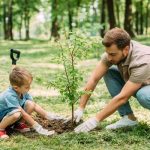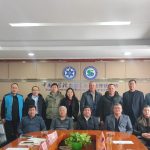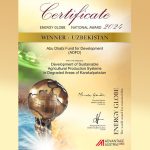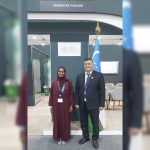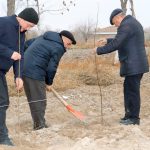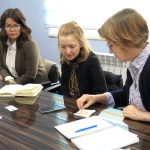In one of the five priority directions of the “Strategy of Action for the five priority directions of development of the Republic of Uzbekistan in 2017–2021 years” approved by the Decree of the President of the Republic of Uzbekistan PD-4947 dated February 7, 2017, the tasks for expanding the production of environmentally friendly products are marked for a significant increase in export potential agrarian sector. Naturally, for the production of environmentally friendly products, first of all, it is necessary to increase the fertility of agricultural land using organic fertilizers.
Therefore, one of the important areas in the agro-industrial complex is the use of biotechnologies in restoring the natural fertility of the soil. The main task in this area is the development of biohumus (vermicompost), a new fertilizer saturated with nutrients and microorganisms, capable of replacing chemical compounds and restoring soil fertility. By composition, biohumus is close to ordinary black soil. It is produced by ordinary earthworms. These same worms produce humus in their natural environment.
Recently, the International Innovation Center for the Aral Sea basin began to breed earthworms at the “Samanbay” research and production site, for scientific research on the production of biohumus, which not only restores soil fertility, but also significantly increases the economic efficiency of agricultural sectors.
In the process of work, a special cultivator was used for worms, 3 m long, 2 m wide, and 1.6 m deep. The necessary substrate has been prepared for about 8 tons of animal manure, bird droppings, plant components of sawdust and sand, for enhancing their activities. By absorbing the prepared substrate, the worms transform it naturally through the digestive system into vermicompost.
After completion of all the necessary preparation measures, 1,500 individuals of earthworms from local breeds brought from an agro firm of Tashkent city were launched into a vermicomposter – cultivator. Kamalatdin Idrisov, head of the laboratory of plant biotechnology and plant physiology at the International Innovation Center for the Aral Sea basin, is engaged in experimental breeding and research of worms.




